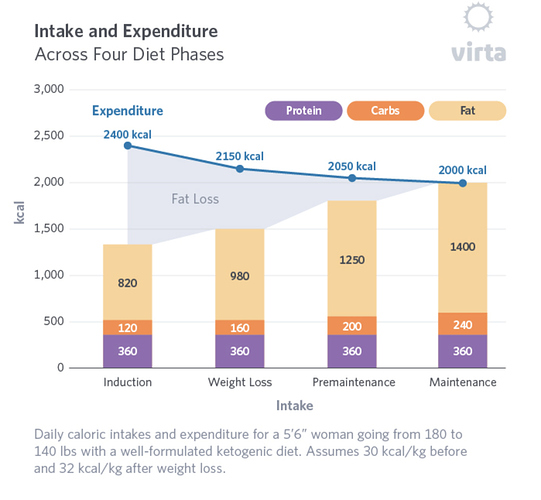The flu-like symptoms are a sign of inadequate salt intake. For various reasons, eating a lot of carbohydrate inhibits the excretion of sodium, and when we eat ketogenically, the kidneys return to excreting sodium at their normal, faster rate, meaning we might have to work a bit to get enough salt. Try to get 10-15 grams of table salt (sodium chloride) a day, inclusive of the salt already in your food, and you will be fine. Also, keeping salt in the right range helps the body keep its potassium, magnesium, and calcium properly regulated, as well.
Lethargy is more a consequence of switching from fueling your muscles with ketones rather than glucose. The skeletal muscles actually prefer to metabolise fatty acids (even over ketones), and this requires the necessary metabolic pathways to be reactivated. This adaptation process usually takes about two months (it’s highly variable from person to person), but your energy should begin returning in the week or so. You will know that you are fully fat-adapted when your energy is back up to your previous levels.
Your protein intake should be proportional to your lean mass. It should be neither excessive, nor so low as to cause muscle wasting. Fill in your caloric needs with fat. As long as your carbohydrate intake is low enough, your insulin will stay in a reasonable range, because fat has almost no effect whatsoever on insulin secretion, making it a safe source of energy.
If you eat to satisfy your hunger, there is no need to calculate macros; most people have a pretty good instinct for how much protein they need, and eating fat to satiety eliminates the need to calculate how much to eat. On a low-carbohydrate diet, your appetite becomes a reliable guide to the amount of food your body needs on any given day. If you have excess fat to get rid of, your appetite will set itself so that the excess fat can be burned off, along with the fat you eat.



